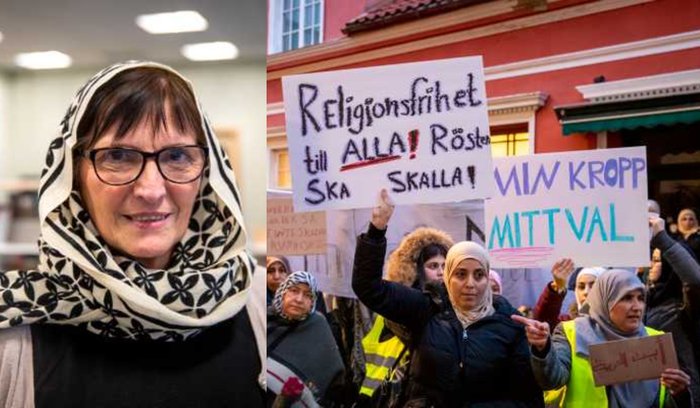In a time of increasing hate crimes and Islamophobia, Muslim women’s hijab is becoming a symbol of resistance and feminism, with women of different faiths donning it to express solidarity with Muslim women.
A bill banning all forms of Muslim head coverings in Sweden has triggered support for the religious community.
Non-Muslim teachers at the Swedish Prästamosseskolan School redefined coexistence and solidarity this week, arriving at work wearing the Islamic hijab.
This came in protest against a hijab ban set to take effect in their city within the next six months.
The educators collectively sent a message of disapproval to the municipality of the Swedish city of Skurup after it approved a bill banning “all forms of Muslim headgear” in primary schools and preschools.
The ban – which was passed in December – affects Muslim women who wear headscarves, burqas, and niqabs, Lancashire Telegraph reported.
“The students get excited when they see that we also have veils. They feel that we support them,” Marit, one of the teachers protesting the ban, explained according to Sputnik News.

Swedish Muslims
Today, Muslim communities amount to 8.1 percent of Sweden’s total population. Around 800,000 people of the faith call the country their home, according to Pew Research Center.
Though Sweden doesn’t enforce hijab ban on a national level, some municipalities across the country have been taking it upon themselves to impose it.
In 2016, an attack on a pregnant veiled Muslim woman in Stockholm triggered calls on Swedish women of all religious affiliations to don hijab, in a show of support to Muslim rights.
The central Swedish city of Gävle also supported an ad campaign in February 2019 to celebrate diversity by posting the photo of a hijabi Muslim woman.
Islam sees hijab as an obligatory code of dress, not a religious symbol displaying one’s affiliations.
Hijab has been in the eye of storm since France banned the headscarf in public places in 2004.
Since then, several European countries have followed suit.